Help us protect the commons. Make a tax deductible gift to fund our work in 2025. Donate today!
Tag: policy
An Invitation for Creators, Activists, and Stewards of the Open Movement
by Shannon Hong, Creative Commons Licenses & Tools, Policy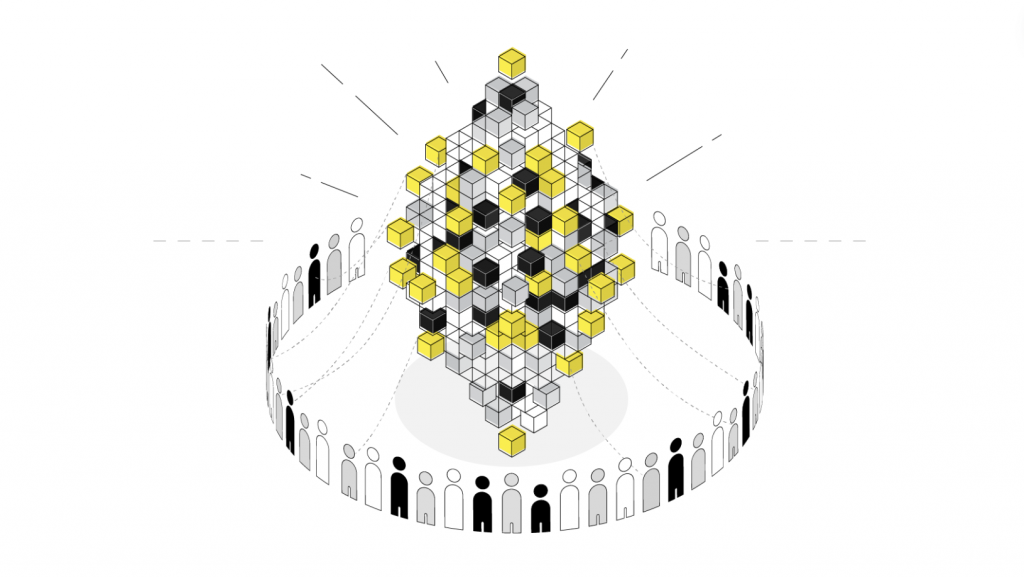 “AI Alignment Assembly” by Jakub Koźniewski for the Open Future Foundation is licensed under CC BY 4.0.
“AI Alignment Assembly” by Jakub Koźniewski for the Open Future Foundation is licensed under CC BY 4.0.
Dear Open Movement Creators, Activists, and Stewards, A key question facing Creative Commons as an organization, and the open movement in general, is how we will respond to the challenge of shaping artificial intelligence (AI) towards the public interest, growing and sustaining a thriving commons of shared knowledge and culture. So much of generative AI…
What does the CC Community Think about Regulating Generative AI?
by Shannon Hong, Timid Robot Zehta, Nate Angell, Kat Walsh Policy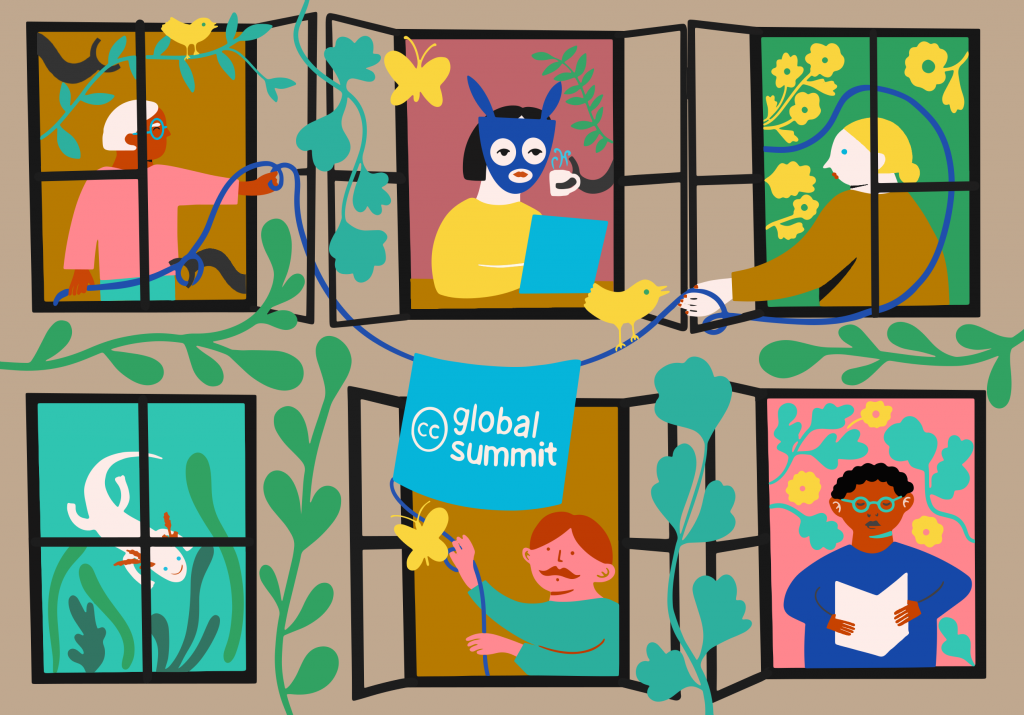 Somos El Bien Común" by Eréndira Derbez for Creative Commons, here cropped, licensed via CC BY 4.0.
Somos El Bien Común" by Eréndira Derbez for Creative Commons, here cropped, licensed via CC BY 4.0.
In the past year, Creative Commons, alongside other members of the Movement for a Better Internet, hosted workshops and sessions at community conferences like MozFest, RightsCon, and Wikimania, to hear from attendees regarding their views on artificial intelligence (AI). In these sessions, community members raised concerns about how AI is utilizing CC-licensed content, and discussions…
CC’s Key Insights from WIPO’s Meeting on Copyright
by Brigitte Vézina, Catherine Stihler Copyright, Open Heritage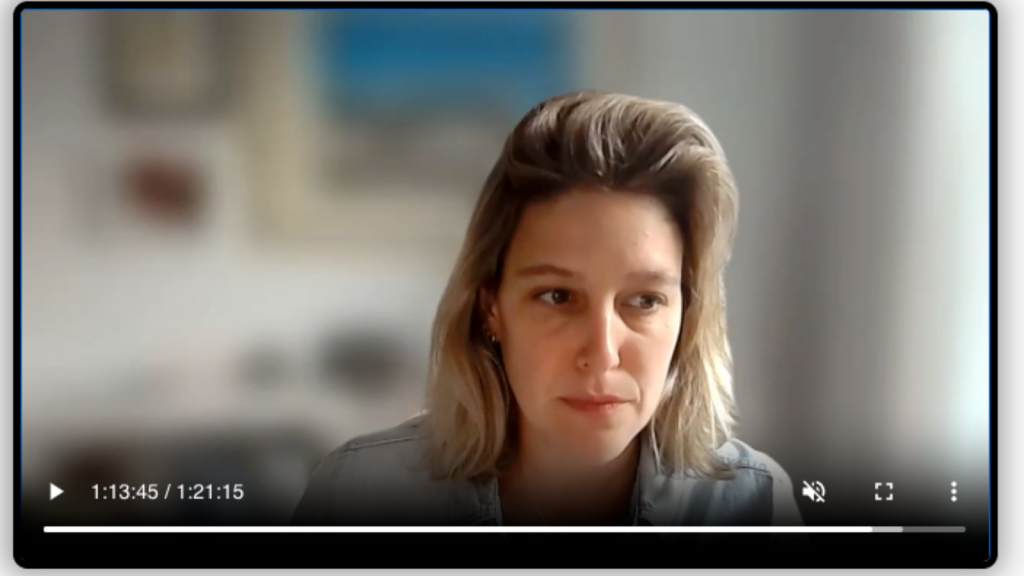 “WIPO SSCR Screenshot” by Creative Commons is licensed via CC BY 4.0.
“WIPO SSCR Screenshot” by Creative Commons is licensed via CC BY 4.0.
From 6 to 8 November 2023, Creative Commons participated remotely in the 44th session of the World Intellectual Property Organization Standing Committee on Copyright and Related Rights. In this blog post, we look back on the session’s highlights on broadcasting, exceptions and limitations, and generative AI, from CC’s perspective.
Maarten Zeinstra — Open Culture VOICES, Season 2 Episode 31
by Brigitte Vézina, Connor Benedict Open Culture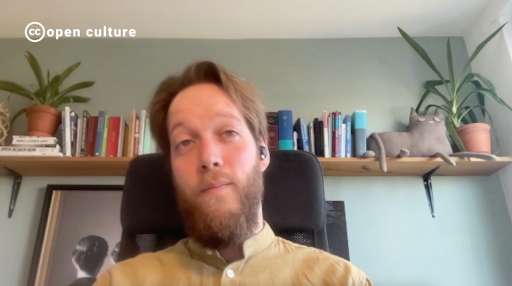
Maarten believes that “Open GLAM is a necessity of a disbalanced copyright framework.” Maarten talks about how open access policies help institutions achieve their public missions. Open access policies in instutions provides good evidence that society and communities need access to cultural heritage to flourish. Open Culture VOICES is a series of short videos…
An Open Letter from Artists Using Generative AI
by Creative Commons Better Internet, Open Creativity, Technology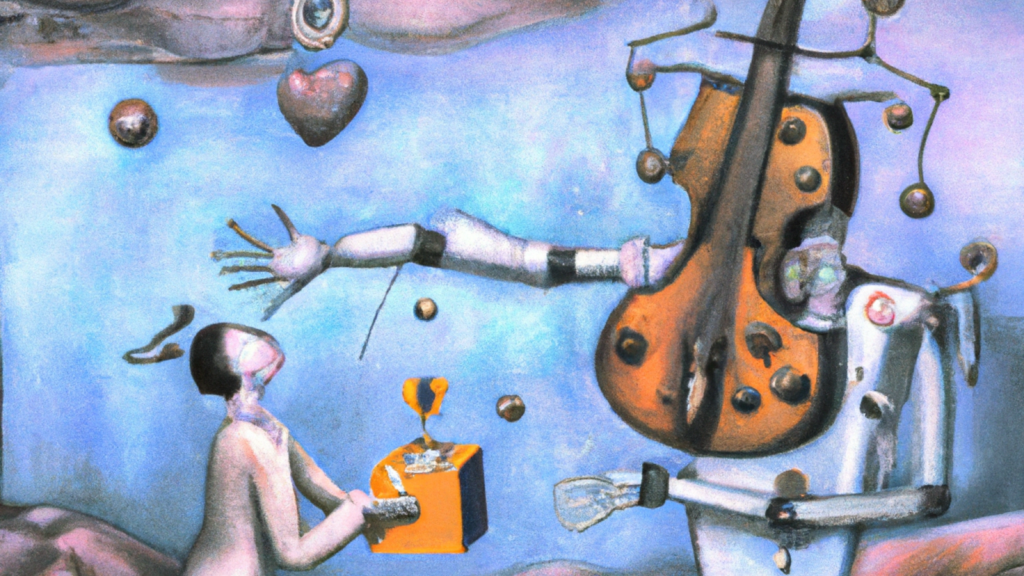 “Better Sharing With AI” by Creative Commons was generated by the DALL-E 2 AI platform with the text prompt “A surrealist painting in the style of Salvador Dali of a robot giving a gift to a person playing a cello.” CC dedicates any rights it holds to the image to the public domain via CC0.
“Better Sharing With AI” by Creative Commons was generated by the DALL-E 2 AI platform with the text prompt “A surrealist painting in the style of Salvador Dali of a robot giving a gift to a person playing a cello.” CC dedicates any rights it holds to the image to the public domain via CC0.
As part of Creative Commons’ ongoing community consultation on generative AI, CC has engaged with a wide variety of stakeholders, including artists and content creators, about how to help make generative AI work better for everyone. Certainly, many artists have significant concerns about AI, and we continue to explore the many ways they might be…
Exploring Preference Signals for AI Training
by Catherine Stihler Better Internet, Open Culture, Technology "Choices" by Derek Bruff, here cropped, licensed via CC BY-NC 2.0.
"Choices" by Derek Bruff, here cropped, licensed via CC BY-NC 2.0.
One of the motivations for founding Creative Commons (CC) was offering more choices for people who wish to share their works openly. Through engagement with a wide variety of stakeholders, we heard frustrations with the “all or nothing” choices they seemed to face with copyright. Instead they wanted to let the public share and reuse…
Understanding CC Licenses and Generative AI
by Kat Walsh Better Internet, Licenses & Tools, Open Creativity, Technology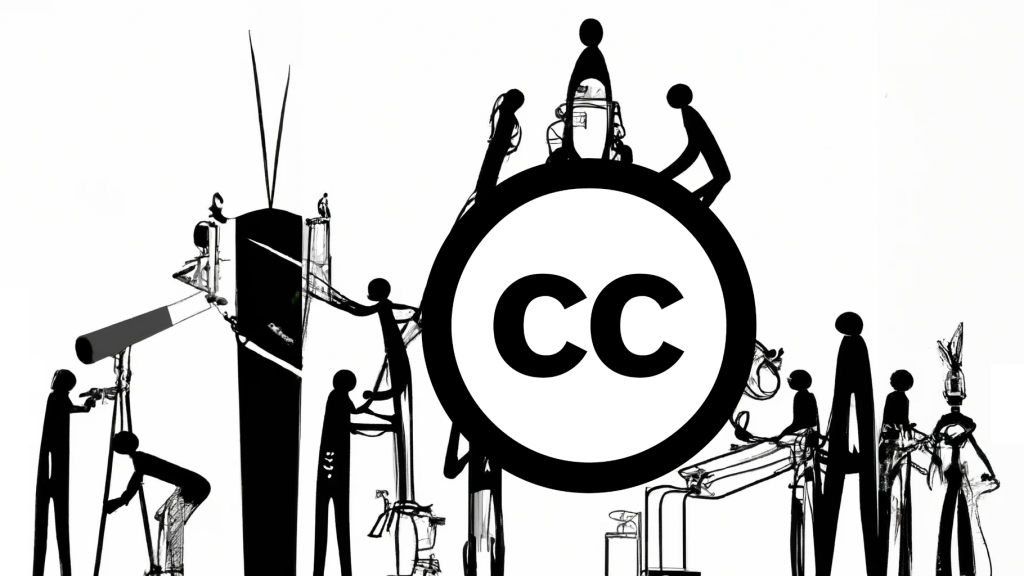 “CC Icon Statue” by Creative Commons, generated in part by the DALL-E 2 AI platform. CC dedicates any rights it holds to this image to the public domain via CC0.
“CC Icon Statue” by Creative Commons, generated in part by the DALL-E 2 AI platform. CC dedicates any rights it holds to this image to the public domain via CC0.
Many wonder what role CC licenses, and CC as an organization, can and should play in the future of generative AI. The legal and ethical uncertainty over using copyrighted inputs for training, the uncertainty over the legal status and best practices around works produced by generative AI, and the implications for this technology on the…
Supporting Open Source and Open Science in the EU AI Act
by Creative Commons Better Internet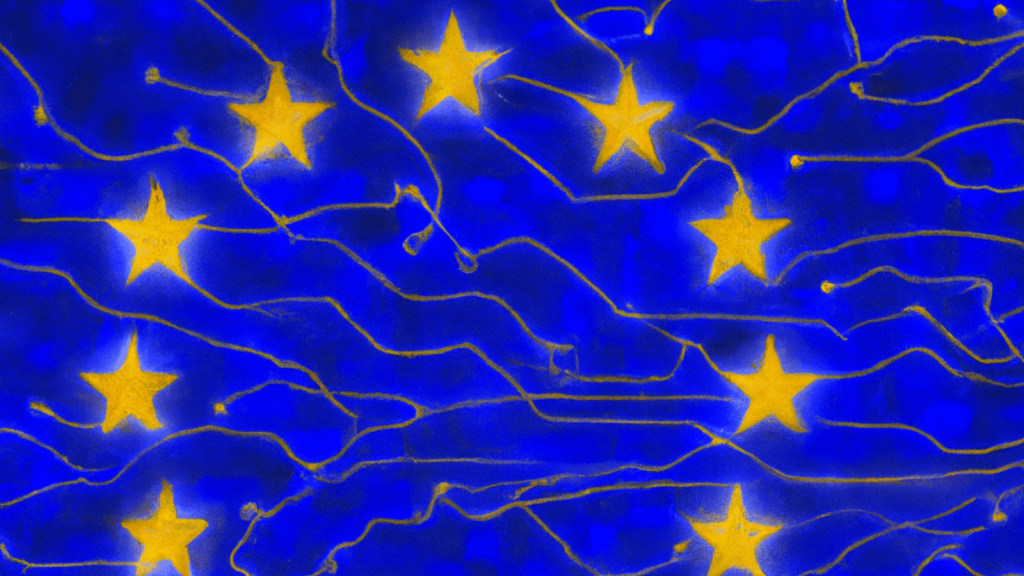 "EU Flag Neural Network" by Creative Commons was cropped from an image generated by the DALL-E 2 AI platform with the text prompt "European Union flag neural network." CC dedicates any rights it holds to the image to the public domain via CC0.
"EU Flag Neural Network" by Creative Commons was cropped from an image generated by the DALL-E 2 AI platform with the text prompt "European Union flag neural network." CC dedicates any rights it holds to the image to the public domain via CC0.
As the EU seeks to finalize its landmark AI Act, CC has joined with Eleuther AI, GitHub, Hugging Face, LAION, and Open Future in offering suggestions for how the Act can better support open source and open science. As we’ve said before, we welcome the EU’s leadership on defining a regulatory framework around AI and…
Update and Next Steps on CC’s AI Community Consultation
by Catherine Stihler Better Internet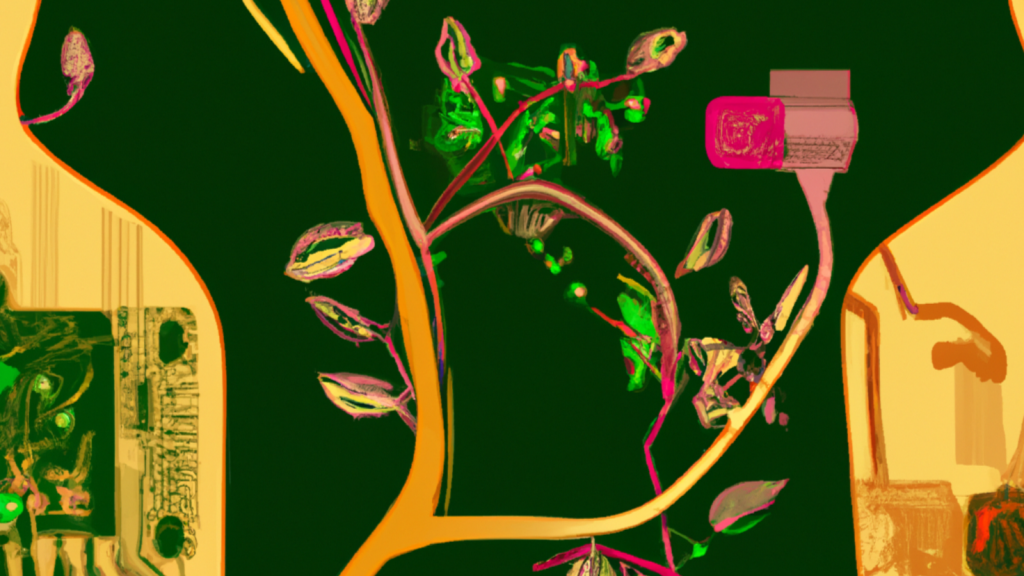 “Plant Circuits” by Creative Commons was generated by the DALL-E 2 AI platform with the text prompt “vines and digital circuit boards in the style of Erté.” CC dedicates any rights it holds to the image to the public domain via CC0.
“Plant Circuits” by Creative Commons was generated by the DALL-E 2 AI platform with the text prompt “vines and digital circuit boards in the style of Erté.” CC dedicates any rights it holds to the image to the public domain via CC0.
We’re nearly halfway through 2023 and this year has already been an eventful one for generative artificial intelligence (AI), presenting unique challenges and opportunities for the Creative Commons (CC) community of creators who embrace open sharing. From the community and beyond, we are seeing urgent demands for support in navigating AI’s implications for the commons.…
CC Joins Key AI Panel in Brussels
by Creative Commons Copyright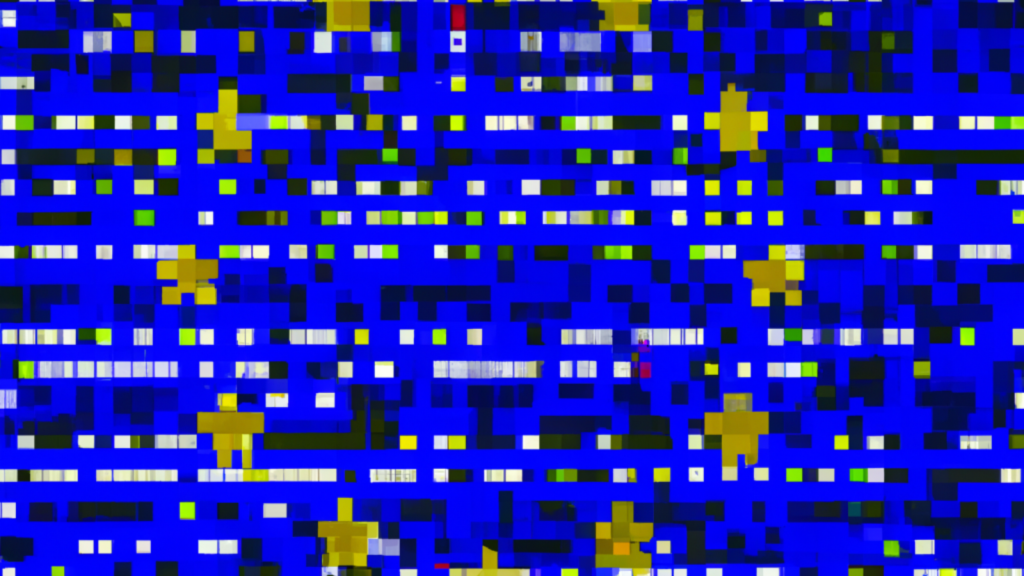 “EU Pixelated” by Creative Commons was cropped from an image generated by the DALL-E 2 AI platform with the text prompt “pixel art of computer code streaming across an EU flag.” CC dedicates any rights it holds to the image to the public domain via CC0.
“EU Pixelated” by Creative Commons was cropped from an image generated by the DALL-E 2 AI platform with the text prompt “pixel art of computer code streaming across an EU flag.” CC dedicates any rights it holds to the image to the public domain via CC0.
As a part of CC’s continuing engagement in policy to shape generative artificial intelligence (AI), Brigitte Vézina, our Director of Policy and Open Culture, participated in a June session hosted by the European Internet Forum: Generative AI, Art & copyright: from creative machines to human-powered tools. The panel was held in the framework of EU…